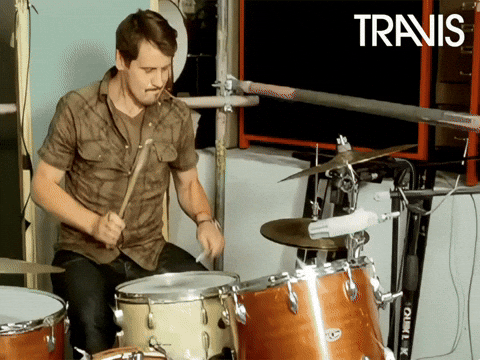- Arlow's Archives
- Posts
- The Rhythm of Innovation: How Fintech and Music are more connected than you think
The Rhythm of Innovation: How Fintech and Music are more connected than you think

Music and finance—two worlds that seem as far apart as vinyl records and mobile banking apps. But if you take a closer look, the evolution of fintech has more in common with the music industry than you might think. Both industries have been transformed by technology, shifting from analog to digital, and now they exist at an intersection where innovation drives them both forward.
Let’s break down how fintech and music share the same rhythm.
1. The Streaming Revolution: Fintech’s Spotify Moment
Remember the days of making mixtapes or burning CDs? You’d carefully curate tracks, piecing together the perfect playlist for every mood. Then came iTunes, Napster, and eventually Spotify—changing everything. The music industry went from selling albums to selling access. Suddenly, you no longer owned the music—you streamed it on demand.
Fintech had a similar revolution. Just like streaming disrupted how we consume music, fintech has transformed how we handle money. Banking isn’t about visiting a branch anymore—it's about opening an app. From peer-to-peer payment platforms like Venmo to robo-advisors and digital wallets, finance is now flexible, fast, and at your fingertips, much like the way we consume music today.
2. The Role of Data: Predicting Hits and Financial Habits
Both the music industry and fintech are driven by data. Services like Spotify use algorithms to recommend your next favorite song based on your listening habits. Similarly, fintech platforms analyze your financial behavior to suggest savings plans, investments, or even ways to manage your budget.
Have you ever noticed how music apps seem to know your vibe before you even hit play? Fintech does the same thing. By tracking your spending and saving habits, it can predict what financial products might work best for you. Whether it’s managing your playlist or your portfolio, the right data leads to smarter decisions.
3. Independent Artists and Fintech Startups: The Rise of Crowdfunding
Crowdfunding has become a game-changer for both industries. Independent musicians no longer rely on record labels to fund their next album; instead, they turn to platforms like Kickstarter or Patreon, where fans directly support their work. Similarly, fintech startups often raise initial capital from everyday investors through crowdfunding.
This direct connection between creators and their supporters mirrors the way fintech is cutting out traditional banks. Just as musicians can bypass labels, entrepreneurs can now access funding from a global pool of backers, all without the need for large financial institutions. Crowdfunding has democratized finance and music alike, allowing anyone with an idea or a song to connect with people who believe in them.

Gif by amas on Giphy
4. Fintech’s Playlist: The Soundtrack of Innovation
If fintech had a soundtrack, it would be a mix of innovation and nostalgia—think synthwave meets smooth jazz. Just as music has evolved from vinyl records to streaming platforms, finance has shifted from cash and checks to digital payments and contactless transactions.
The transition from physical to digital mirrors how both industries have made life simpler. You can listen to your favorite album on demand, just as easily as you can manage your finances with a tap on your phone. Both are about access—to your music and your money—anytime, anywhere.
5. Subscription Models: From Music to Fintech
The subscription model that took over the music world (thanks to platforms like Spotify and Apple Music) has also made waves in fintech. Think about it: instead of buying CDs or albums, you pay a monthly fee to stream unlimited music. In fintech, we’re seeing similar subscription models, whether it’s for financial planning services, budgeting apps, or access to premium investment tools.
Much like the way we subscribe to music platforms, fintech companies are offering services on a subscription basis, helping users manage everything from savings to credit scores, all for a monthly fee. It’s an easy, predictable way for both industries to offer premium experiences.
6. Fintech in Live Events: Seamless Payments at Concerts
The concert experience has been modernized by fintech. Gone are the days of fumbling with cash for a T-shirt or a drink. Whether you’re at a stadium concert or a small venue, mobile payment systems are now the norm. Platforms like Apple Pay or Google Pay allow you to grab a souvenir or buy a snack without leaving your seat.
Fintech has improved the live music experience, making it more convenient and secure. This kind of seamless integration enhances both the fan’s experience and the artist’s ability to engage with their audience, showing how finance and music are working together to improve the way we enjoy live events.
Conclusion: A New Beat for Fintech and Music
At first glance, fintech and music seem like an odd pair, but when you dig deeper, it’s clear they share common ground. Both have been transformed by technology, data, and the rise of digital platforms. Whether it’s about streaming your favorite song or managing your finances with ease, fintech and music are playing from the same sheet—accessibility, convenience, and innovation.
As these two industries continue to evolve, who knows what new ways they’ll connect? One thing is for sure: fintech and music have struck a chord, and the beat is only getting stronger.

Gif by travisband on Giphy


Reply